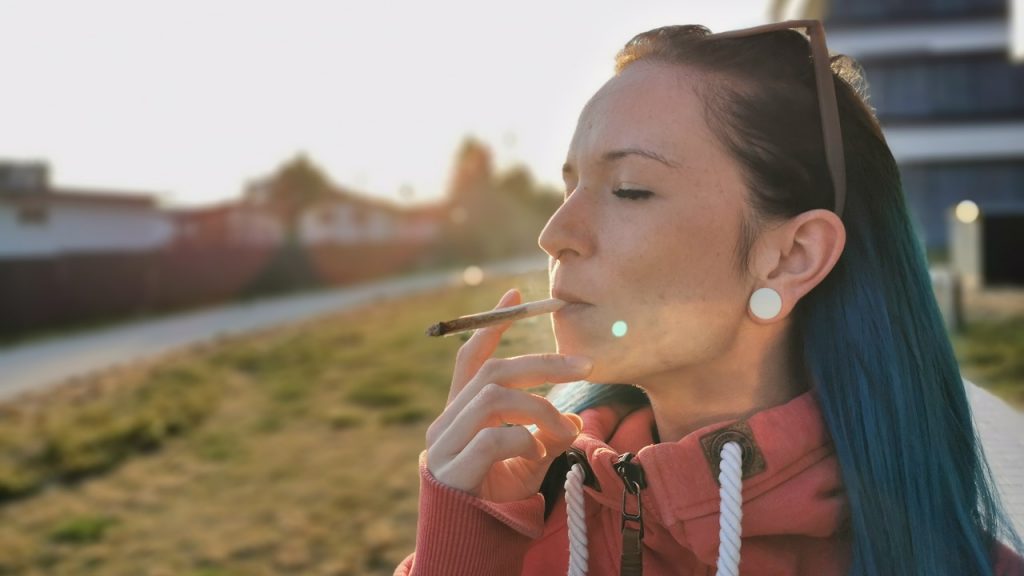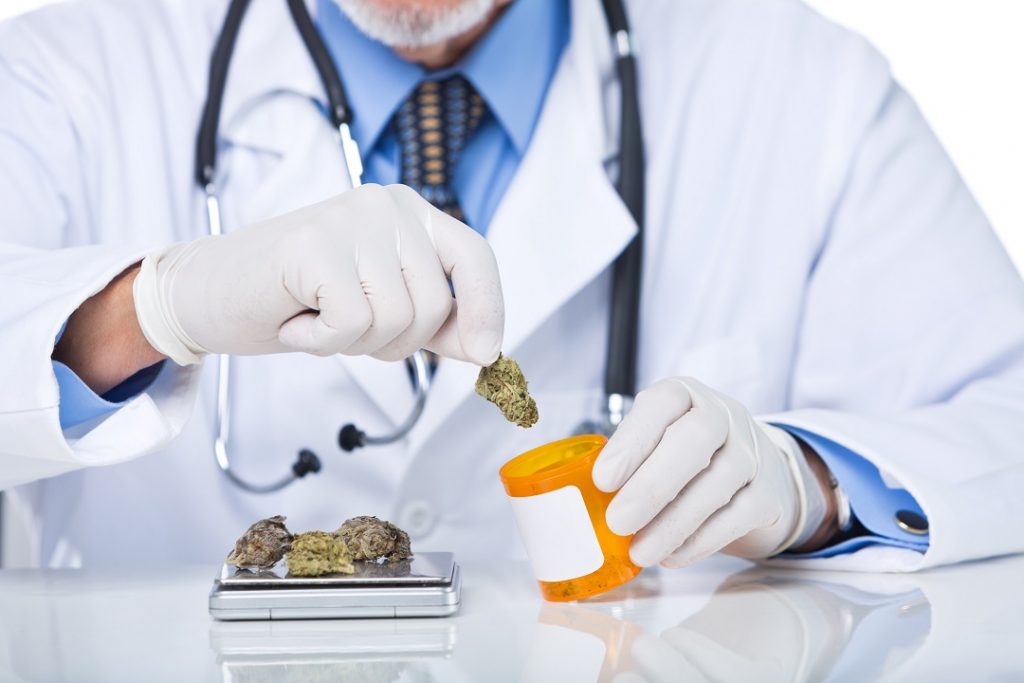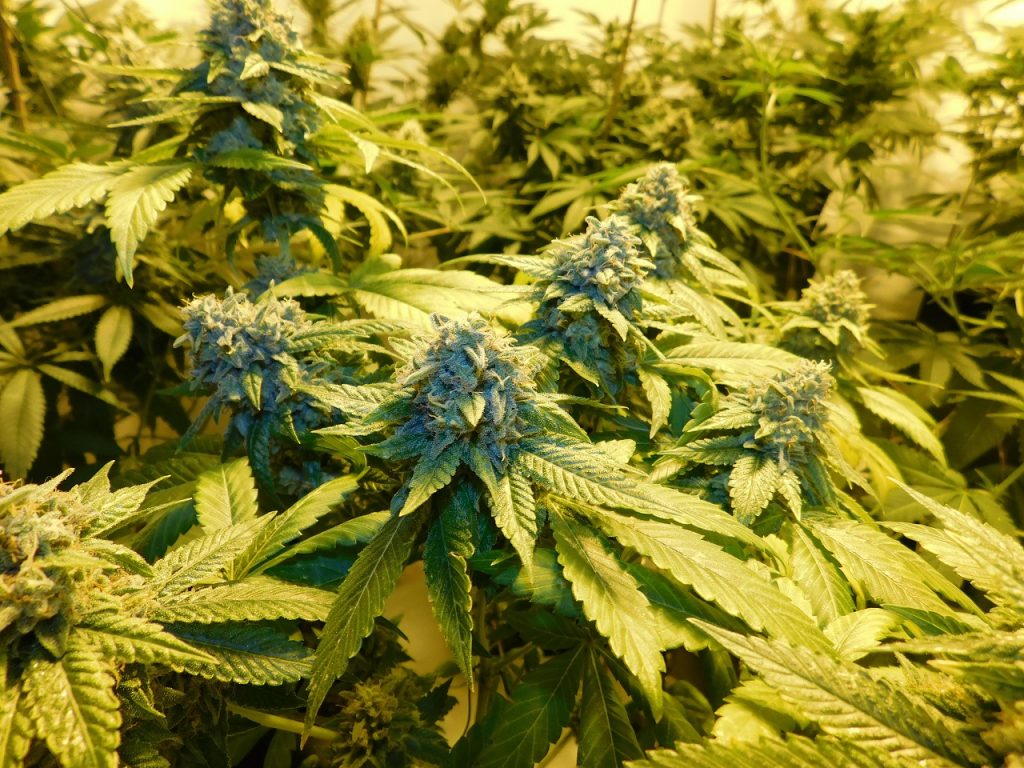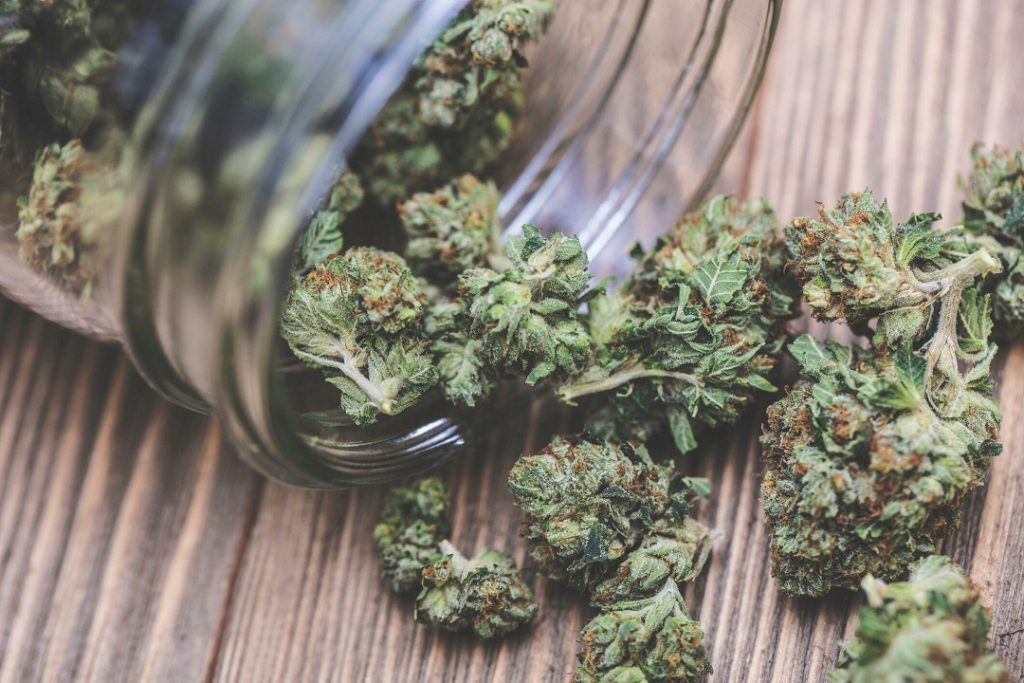During my period, I find myself relying on cannabis a lot more. I slather on every topical I can find to ease the muscle cramps and double the ingestible methods to elevate my mood. Sometimes, I can smoke an entire pre-roll to myself and barely feel a thing aside from the dulling of excruciating pain. While cannabis works much better than any pharmaceutical prescribed for pain and other symptoms, my tolerance always seems much higher during my cycle.
For a long time, I thought that was because I have Endometriosis (a disease where the tissue lining the uterus grows outside and attaches to other organs), and this can cause very painful periods. I have always needed more pain relief and more options for managing my anxiety, two symptoms that are far more intense during my period. I only recently became aware that the reason for this is because anandamide levels, an endocannabinoid that helps increase happiness and reduce stress, vary greatly during the menstruation cycle.
Furthermore, I found out that estrogen levels directly correlate to cannabis tolerance, and they are lowest during menstruation. When those levels are higher, the body breaks down the psychoactive compound in cannabis (THC), making it more potent, which means that less is needed. Of course, as Marissa Fratoni, RN-BSN, points out, every person is different, and while some may need to use more, that isn’t the case across the board.
“Some women may find that they may require a little more cannabis to improve their symptoms prior to, during, and directly after menstruation. Some women may need to use cannabis minimally to improve the symptoms they experience during this time.”
Fratoni tells HighTimes that some people can have negative effects when they use cannabis during menstruation. For some, THC-dominant products make anxiety symptoms worsen, and other mood imbalances can alter the outcome of cannabis consumption. She suggests taking a break from THC during your period if this is the case and focus on CBD-dominant products.
CBD can mimic estrogen when it blocks Fatty Acid Amide Hydrolase (FAAH), an enzyme that breaks down anandamide. So, if you are sensitive to cannabis during your cycle, adding CBD or increasing your dosage of CBD will still help combat the mood changes and other side effects. This can be particularly helpful during the premenstrual syndrome (PMS), which encompasses many physical and psychological symptoms: bloating, indigestion, sleep disturbances, fatigue, acne, irritability, depression, anxiety, mood swings, and more.
Cannabis and the menstrual cycle
Fratoni says that history is full of women treating PMS with cannabis, and for good reason.
“We know that the female reproductive system and the endocannabinoid system are deeply integrated physiological systems, so it’s really no surprise that cannabis is used by women all over the world to manage their own personal PMS symptoms,” she says.
Because PMS symptoms tend to be the result of plummeting estrogen levels, and anandamide is attacked during this time, everything is off kilter. Fratoni points out that using a little THC can go a long way in promoting a better quality of life during the menstruation cycle.
“Known as the ‘bliss’ molecule, anandamide plays an integral part in helping us feel our best, happy selves. So it makes sense that a little THC would help a woman struggling with any number of PMS symptoms to feel better as it would help to improve the levels of this ‘bliss’ molecule, promoting balance in the reproductive system as it goes a little off kilter to promote menstruation. Beyond this, cannabis in general is a superior anti-inflammatory, so it can really help manage the aches, pains, and swelling associated with PMS.”
While it may not work for everyone, there is one study from 1986 that shows THC may reduce the length of menstruation. Because it is a strong analgesic, it is great for pain, but it is also an antinociceptive agent, which means it stops the nerves from sensing any pain signals at all. For people with painful periods, this is a big deal, as evidence shows that they tend to be more sensitive to pain throughout their cycles (even if there is no background period).
As Fratoni points out, over 90% of people with periods suffer from debilitating symptoms every month, and cannabis can provide great relief.
“It’s important for women to explore with different cannabis products to determine what works best for them. It’s also imperative that women up the ante in the self-care department prior to the start of their menstrual cycle to improve the outcome,” she says, pointing out that cannabis is not a cure-all, “Cannabis is a tool for improving symptoms, but for many women – severe PMS symptoms provide evidence of disharmony that needs to be explored, discovered, and treated at the root for optimal health and well-being throughout the lifespan.”
To separate the relief from something of concern, keeping a journal during your cycle will help. Not only will you be able to plan a tailored treatment plan for future reference, you can avoid using too much once estrogen levels rise again. By noting things like which terpenes have a positive impact on your symptoms, you can also avoid wasting money.
For example, instead of increasing dosage, the answer could be a different strain, or perhaps adding more CBD to your regimen. Luckily, more and more applications for period relief with cannabis are surfacing on the market, such as suppositories and personal lubricants, making it easier to manage symptoms. It may take some trial and error, but the benefits and autonomy that cannabis can supply outweigh the negative surprises.





